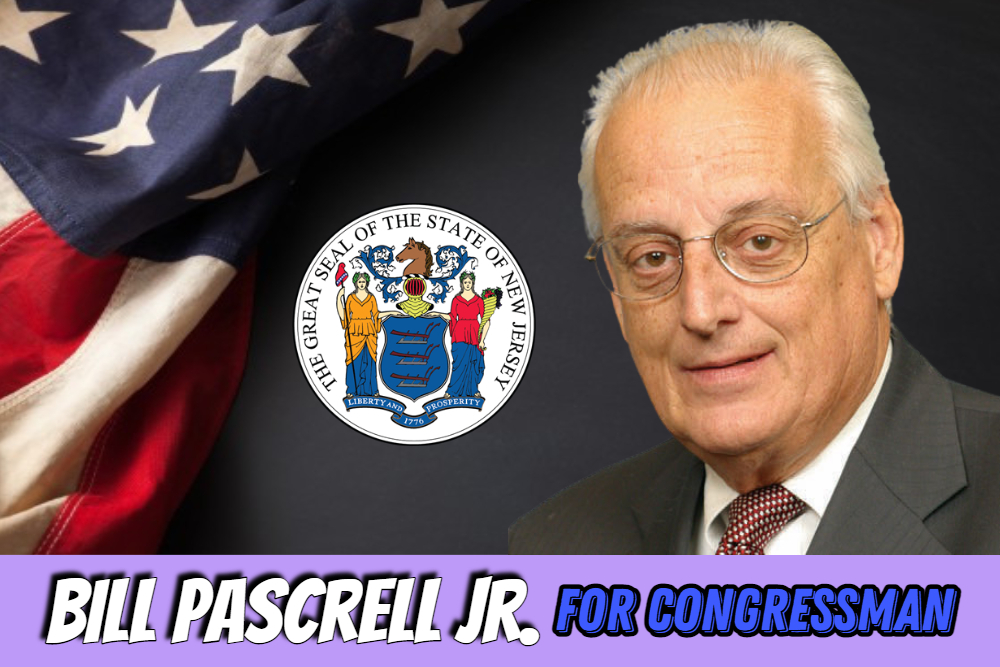Letter to DHS Secretary Mayorkas urges transparent and fair process for New Jersey policy holders in update to NFIP
Tags: Energy & the Environment
U.S. Reps. Bill Pascrell, Jr. (D-NJ-09) and Frank Pallone, Jr. (D-NJ-06), the Chairman of the House Committee on Energy and Commerce, sent a letter to Homeland Security Secretary Alejandro Mayorkas urging the National Flood Insurance Program’s Risk Rating 2.0 implementation be postponed to ensure transparency in the process and fairness for New Jersey policyholders.
“We write to urge you to postpone the implementation of the Risk Rating 2.0 update to the National Flood Insurance Program,” the Members write. “While we appreciated that the Federal Emergency Management Agency (FEMA) delayed implementing Risk Rating 2.0 in 2019, numerous concerns we have raised about the impact of implementation on our constituents still have not been addressed. With so many questions left unanswered, the expected implementation of Risk Rating 2.0 for new policyholders on October 1, 2021 and existing policy holders on April 1, 2022 is unacceptable.”
The members continued, “Policyholders cannot suffer from a double-digit rate increase in addition to the fees and surcharges they will be expected to pay under Risk Rating 2.0. Also, any backdoor attempts to remove grandfathered policies would be deemed unacceptable.”
Last Congress Reps. Pascrell and Pallone led the bipartisan introduction of legislation to extend the National Flood Insurance Program (NFIP) for five years while instituting a series of sweeping reforms to address the waste, abuse, and mismanagement plaguing the system that led to delayed recovery for Superstorm Sandy survivors. With an eye towards Risk Rating 2.0, the bill protected policyholders from exorbitant premium hikes by capping annual increases at 9%.
The members also sent a bipartisan letter to House Leadership stressing the need for affordable insurance rates in a long-term NFIP reauthorization. Reps. Pascrell and Pallone testified before the House Committee on Financial Services in support of a long-term NFIP reauthorization that is affordable, helps policyholders prior to a storm, updates the claims process, and holds bad actors accountable.
The text of the members’ letter to Secretary Mayorkas is provided below.
March 23, 2021
The Honorable Alejandro Mayorkas
Secretary
U.S. Department of Homeland Security
3801 Nebraska Avenue NW
Washington, D.C. 20016
Dear Secretary Mayorkas,
We write to urge you to postpone the implementation of the Risk Rating 2.0 update to the National Flood Insurance Program. While we appreciated that the Federal Emergency Management Agency (FEMA) delayed implementing Risk Rating 2.0 in 2019, numerous concerns we have raised about the impact of implementation on our constituents still have not been addressed. With so many questions left unanswered, the expected implementation of Risk Rating 2.0 for new policyholders on October 1, 2021 and existing policy holders on April 1, 2022 is unacceptable. Under the prior Administration, the process was not collaborative or transparent ensuring that the current proposal does not provide affordable protections for New Jersey policyholders.
Rather than using flood maps and zones to determine a policyholder’s premium rate, Risk Rating 2.0 is expected to use a series of models that will “fundamentally change” a property’s individual flood risk assessment.[i] While we know FEMA intends for Risk Rating 2.0 to provide more accurate and transparent flood insurance pricing, this update is expected to increase premiums for the majority of policyholders in New Jersey. We remain perturbed that these burdensome costs could force some homeowners to drop coverage, or even worse, lose their homes. That fear is compounded as policyholders are dealing with the negative health and economic impacts of the COVID-19 pandemic.
Based on what little FEMA has revealed to date, many questions remain about Risk Rating 2.0. Congress and the public need more information about this proposal before FEMA determines new premiums for policyholders. Policyholders must be educated about and understand the impact Risk Rating 2.0 will have on their property and finances. Additionally, there must be a full explanation about how current affordability programs, grandfathered properties and pre-FIRM properties will be impacted. Finally, FEMA must release an economic impact analysis to inform Congress and the public about how Risk Rating 2.0 will affect insurance premiums, rates, property values, rates of dislocation, flood insurance enrollment rates and the overall housing economy.
We recall how problems surrounding the implementation of the Biggert-Waters Act of 2012 led to premium hikes and sent a chill through the real estate market. We worry FEMA could be replicating this history with Risk Rating 2.0. We have sought a lower premium cap in any potential long-term reauthorization of the National Flood Insurance Program because we expected the current protections for policyholders would be insufficient to keep our constituents’ policies affordable under Risk Rating 2.0. Policyholders cannot suffer from a double-digit rate increase in addition to the fees and surcharges they will be expected to pay under Risk Rating 2.0. Also, any backdoor attempts to remove grandfathered policies would be deemed unacceptable.
Under the previous Administration, FEMA’s reluctance or inability to provide information on all aspects of this new proposal to members of Congress and the public was alarming. Without a full public understanding of Risk Rating 2.0, an enormous degree of uncertainty continues to linger over the effect on the 217,200 policyholders in New Jersey. Given these uncertainties, lingering questions, and the dire financial straits so many households find themselves in due to the pandemic, we urge you to postpone plans to implement Risk Rating 2.0. We believe doing so would allow time for what we hope will be an improved dialogue between FEMA and Congress and allow policyholders further time to plan their futures with better information.
We look forward to working together to ensure the National Flood Insurance Program remains affordable.
Sincerely,
Cc Acting FEMA Administrator Bob Fenton
Original source can be found here.


